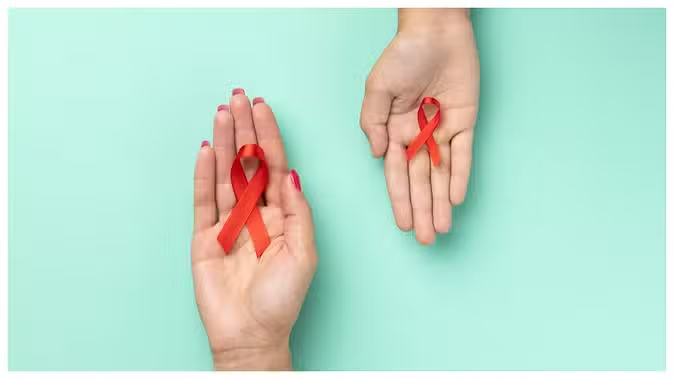Human Immunodeficiency Virus (HIV) is a serious infectious disease that causes Acquired Immunodeficiency Syndrome (AIDS). Due to innovation in the medical field and the development of effective medicines, this infection is no longer incurable, although it still causes the death of millions of people every year globally. According to statistics, in the year 2023, about 6.30 lakh people died from HIV-related diseases worldwide. This is 69% less than in the year 2004, when 2.1 million (21 lakh) people died.

Recently the United Nations has shared relief information regarding HIV infection. According to the report, this is the first time since the rise of this disease in the late 1980s that the least number of its patients have been reported. Last year, the number of people infected with HIV was the lowest compared to any time, although it is still much higher than the targets set by the United Nations.
World AIDS Day is celebrated every year on December 1 to raise awareness about the AIDS epidemic globally and alert people about its prevention. It is worth noting that the United Nations is working on the goal of eliminating AIDS as a threat to public health by the year 2030. Let us see how much success has been achieved in this direction so far.
Reduction in the case of AIDS patients
According to the report of the UNAIDS agency, about 1.3 million (13 lakh) people were infected with this disease in the year 2023. This is still three times more than the number required to reach the goal of eliminating AIDS as a threat to public health.
Experts said, there has been success in the direction of preventing AIDS, but still a lot of effort remains to be done. This progress is attributed to antiretroviral treatments, which have helped in reducing the viral load in patients. However, it is worrying that out of the approximately 40 million people suffering from HIV worldwide, about 9.3 million people are still not getting any treatment.
HIV infection increased in 28 countries
According to the report, despite better efforts to prevent AIDS and a global decrease in cases, HIV infection increased in 28 countries last year. The main reason for this is believed to be difficulties in efforts to provide preventive treatment called Pre-Exposure Prophylaxis (PrEP) in these countries.
UNAIDS Deputy Director Christine Steigling said discrimination and stigma against people suffering from HIV are still hindering the fight against this disease. We need to come together to fight this deadly disease.
HIV medicine In recent years, many effective medicines have been in the news regarding the prevention and treatment of HIV. Initial tests of a drug called lenacapavir found that it is up to 100 percent effective in preventing HIV infection. Experts have described it as a potential game changer in the fight against this disease, although its cost is still a cause of concern.
In recent years, many effective medicines have been in the news regarding the prevention and treatment of HIV. Initial tests of a drug called lenacapavir found that it is up to 100 percent effective in preventing HIV infection. Experts have described it as a potential game changer in the fight against this disease, although its cost is still a cause of concern.
American pharmaceutical company Gilead is charging $40,000 per person for this drug in some countries. However, last month Gilead announced a deal with generic drug manufacturers to make and sell the drug at a lower price in low-income countries.
Prevention of HIV infection is important.
Health experts say HIV and AIDS have been a cause of serious health concerns. The feeling of stigma about this disease is still a hindrance to its treatment. Everyone needs to continue taking precautions to prevent HIV. It can be prevented by practicing safe sex, testing for HIV and sexually transmitted infections (STIs), not sharing needles-syringes or other drug injection equipment, and adopting methods that increase the body's immunity.
(PC: Freepik)










